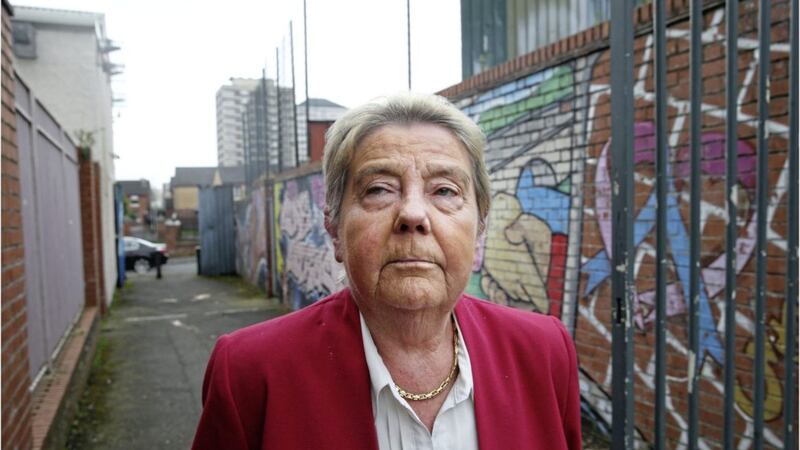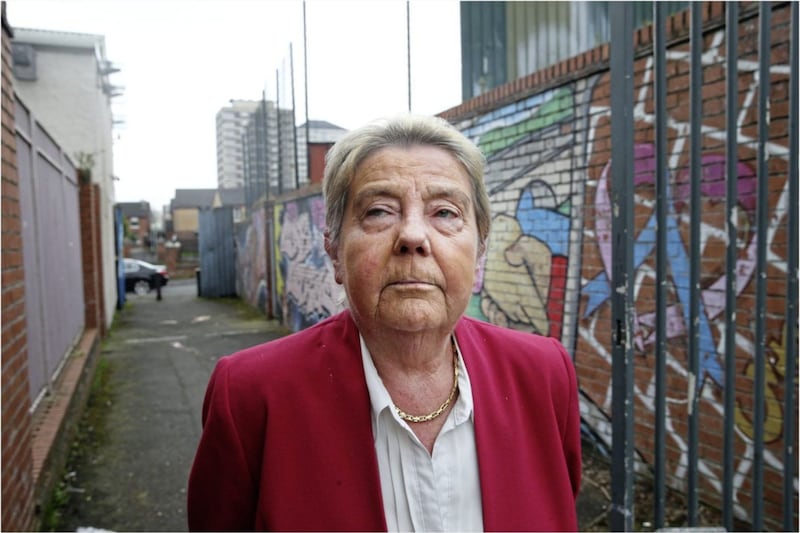POLITICIANS have been warned not to "play games" with Northern Ireland's most vulnerable and ensure protections from controversial welfare reforms are embedded in any new devolution settlement.
The expert who designed a support package for benefit recipients that will expire within weeks has warned that the imposition of new benefits rules, including the `bedroom tax', benefit cap and PIP assessments for the disabled, would increase the financial burden on the north's economy.
"It's the economics of madness," Professor Eileen Evason said.
"This new system will be far less effective than the arrangements we have now. It is far more expensive and it is going to be brought in to replace something which works perfectly well.
"Families will be forced to move out of their homes to look for houses - which we know don't exist - in the private rental sector. Their other option is to stay and fall into arrears or cut back on things like food and electricity.
"What's more important than preventing the suffering we're facing?
"This has been rattling around for the last six months. The secretary of state has acted in other instances, including around victims.
"A tiny piece of legislation put through Westminster is needed. Everybody's playing games. It's like pass the parcel, but the parcel is vulnerable people and if they're not careful they're going to drop parcel."
Secretary of State Julian Smith wrote to the parties currently locked in talks to restore devolution, reiterating that "welfare is a devolved matter in Northern Ireland and the extension of these mitigations is a matter for the Northern Ireland Civil Service and restored executive ministers".
He said the Department for Communities permanent secretary "is considering what measures can be put in place" if devolution is not achieved before March 31, including the Discretionary Housing Payment Scheme (DHPS).
Advice NI head of policy Kevin Higgins said DHPS would be "a poor substitute" for legislation, with "the most vulnerable most likely to lose out".
Labour peer Baroness Lister told the House of Lords that "civil servant time is being wasted because the Department for Communities is having to prepare for two possible scenarios little more than two months away because of the government’s refusal to act".
She demanded ministers "guarantee now that one way or another the mitigations scheme will continue after the end of March".
The SDLP's Nichola Mallon said there is political consensus over the "looming welfare cliff edge".
"Alongside the health service and mental health crises, our view is that the welfare crisis is one of the most compelling reasons for restoration of a power-sharing and inclusive assembly... failing that, Westminster must act and must legislate to extend and fund welfare mitigations".
Sinn Féin's Alex Maskey said the party "have made it clear during negotiations that the welfare mitigations achieved by Sinn Féin in 2015 should be extended beyond March 31... this needs to be done, regardless of the outcome of the current talks".
Ulster Unionist welfare spokesperson Robbie Butler said "it would be a disgrace if political stalemate got in the way of these crucial protections being continued".
Alliance's Kellie Armstrong said Stormont must be re-established in order to "review the entire matter of welfare mitigations".







